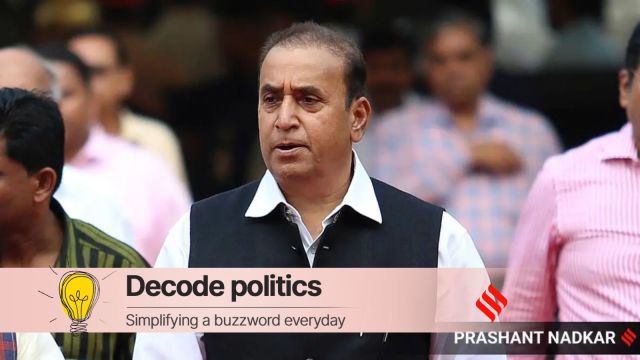Decode Politics | In wake of Badlapur case, call for Shakti Bill: why and what the long wait is about
The legislation, on the lines of Andhra’s Disha Act, provides for stringent penalties including capital punishment in cases of crimes against women
 Nationalist Congress Party (Sharadchandra Pawar) leader Anil Deshmukh. (Express File Photo)
Nationalist Congress Party (Sharadchandra Pawar) leader Anil Deshmukh. (Express File Photo)A day after Badlapur in Thane district erupted in protests over the alleged rape of two schoolchildren, former Maharashtra Home Minister and Nationalist Congress Party (Sharadchandra Pawar) leader Anil Deshmukh called for implementation of the ‘Shakti Bill’ in the state.
The Bill, which has provisions for stringent punishment for crimes against women, was passed unanimously in the Assembly almost three years ago, but still awaits implementation.
What are the provisions of the Bill and why has it been relegated to the backburner despite clearing the legislative test?
What was the Shakti Bill?
In December 2021, the Maharashtra Assembly unanimously passed the Shakti Criminal Laws (Maharashtra Amendment) Bill, becoming the second state after Andhra Pradesh – which had enacted the AP Disha Act in 2019 following the rape and murder of a 26-year-old veteriranian – to approve the death penalty for heinous offences like rape and gang rape.
The Bill introduced amendments in the relevant sections of the erstwhile Indian Penal Code (IPC), Criminal Procedure Code (CrPC) and Protection of Children from Sexual Offences (POCSO) Act to enable the introduction of capital punishment for heinous crimes.
What were the main changes that the Bill proposed?
Previously, only repeat sexual offenders were liable for punishment by the death penalty. But the Shakti Bill sought to extend it to cases of rape and gangrape which were deemed “heinous” and were supported with “adequate conclusive evidence”.
The Bill also increased the provision of fines and penalties for sexual violence against women and minors. It also amended provisions of the POCSO Act to enhance the punishment of penetrative sexual assault to the death penalty.
How did the Shakti Bill change existing laws?
The Bill introduced Section 354E to the erstwhile IPC to address concerns of sexual harassment via intimidation or offensive communication by criminalising acts that create a sense of danger or fear, including offensive digital communication. The provision enabled offenders to be jailed for up to two years and imposed a fine up to Rs 1 lakh on them. It also criminalised threats to upload or disseminate sexual content or images of women.
The Shakti Bill also had provisions to mandate social media platforms and mobile data companies to provide data to authorities involved in investigating cases of rape, sexual harassment and related crimes within three working days of request or face imprisonment for up to three months and/or a fine up to Rs 25 lakh. It imposed a jail term of 1-3 years and fines up to Rs 1 lakh for those who filed false complaints with the intent of harassing or defaming.
It prohibited anticipatory bail for the accused and stipulated that bail in cases of acid attacks, rape and gangrape could be granted by the sessions courts or higher courts.
Did the stringent stipulations come under criticism?
Following the introduction of the Bill, 92 signatories, including prominent lawyers and child and women’s rights groups, expressed concerns over the introduction of capital punishment, arguing it could be counterproductive and deter victims from reporting the crimes, especially when the perpetrators are known to them.
They suggested that effective implementation of existing laws would be a better approach than the introduction of capital punishment.
Why has the Bill not been implemented yet?
State Home Minister Devendra Fadnavis last year told the Assembly that the Union Home Ministry had requested several clarifications, which the state government was providing. He said special laws sometimes necessitate changes to Central laws, leading to scrutiny by various Central departments, including the Law and Justice Department, to ensure conformity with Supreme Court and High Court judgments.



- 01
- 02
- 03




























